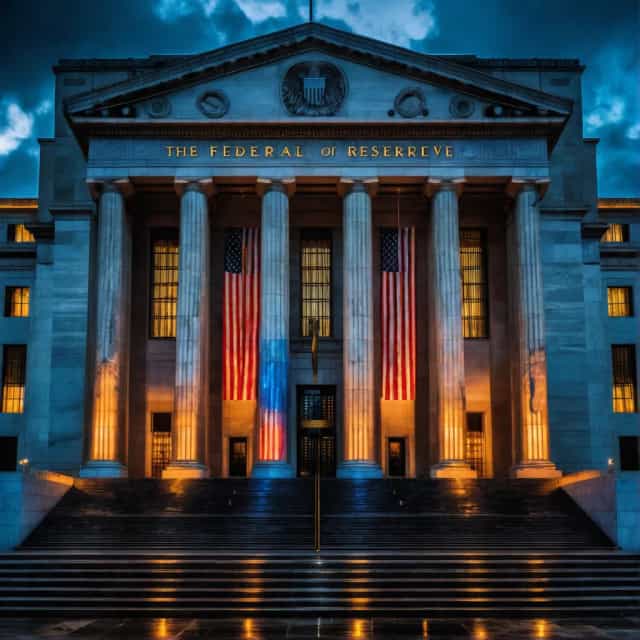
출처: Block Media
SEC Revolutionizes Cryptocurrency ETF Landscape with Groundbreaking Regulation
Accelerating Approval for Cryptocurrency ETFs
The U.S. Securities and Exchange Commission (SEC) has ushered in a transformative regulatory change aimed at reshaping the cryptocurrency ETF market. Leveraging amendments proposed by leading exchanges such as Nasdaq, Cboe BZX, and NYSE Arca, the SEC has approved the "Generic Listing Standards." This framework is designed to streamline the approval process for cryptocurrency exchange-traded funds (ETFs) and broaden access to digital asset investments.
The decision to fast-track the approval process is particularly striking. The SEC cited "good cause" for enacting the new standards immediately, bypassing the standard 30-day waiting period following publication. As a result, the process for approving pending cryptocurrency ETFs is now set to accelerate significantly.
Historically, exchanges intending to list a new cryptocurrency ETF faced a cumbersome process that required submitting a Form 19b-4 and enduring review periods that could extend up to 240 days. Under the new rules, this timeline has been slashed to a minimum of 75 days. Additionally, crypto ETF products that meet the newly established standards can bypass the Form 19b-4 submission entirely, facilitating immediate listings. "The approval marks a step forward in expanding investor choice while lowering the entry barriers for digital asset investments in U.S. capital markets," stated the SEC.
Grayscale's Multi-Crypto ETF Takes Center Stage
The first ETF to capitalize on this regulatory overhaul is the Grayscale Digital Large Cap Fund (GDLC). This landmark ETF provides exposure to multiple cryptocurrencies, including Bitcoin (BTC), Ethereum (ETH), Ripple (XRP), Solana (SOL), Cardano (ADA), and others. The fund's portfolio allocates 30% to Bitcoin, 20% to Ethereum, and 5.2% to XRP, among other assets, and boasts $915.6 million in managed assets.
Originally launched by Grayscale in 2018 as a private offering for institutional investors, the GDLC later became available for trading in the over-the-counter (OTC) market. While Grayscale initially planned to initiate its ETF conversion in July, procedural delays postponed its approval. The recent regulatory clearance removes uncertainties surrounding its debut in the U.S. ETF market.
Barry Silbert, founder of Grayscale’s parent company Digital Currency Group (DCG), hailed the approval as "groundbreaking," emphasizing the company’s leadership in bridging the gap between traditional finance and digital innovation. Grayscale CEO Peter Mintzberg reinforced this sentiment, stating, "Grayscale’s vision is centered on delivering innovative solutions that align with investor needs. We remain steadfast in our commitment to bringing these products to market with urgency."
Towards a Multi-Asset Crypto ETF Era
The SEC's regulatory milestone signals a new epoch for cryptocurrency ETFs, moving the needle from single-asset offerings to multi-asset products that integrate a broader array of digital currencies. With barriers to approval significantly reduced, cryptocurrencies such as Solana, Chainlink, and Litecoin are now poised for inclusion in ETF portfolios. Through these products, investors gain indirect exposure to multiple digital assets via traditional financial platforms, eliminating the need for intricate individual cryptocurrency purchases.
Prior to this pivotal announcement, Bitcoin and Ethereum ETFs received SEC approval in 2024, laying the groundwork for continued innovation in the space. The inclusion of XRP in Grayscale’s GDLC further intensifies the momentum of this evolution. Experts agree that this development isn’t merely about expanding product offerings; it’s a watershed moment that harmonizes regulatory advancements and surging market demand, solidifying cryptocurrency ETFs as a vital conduit between traditional finance and the world of digital assets.
Implications for Market Confidence and Broader Adoption
The SEC’s streamlined approach enhances market confidence, affirming the growing maturity of digital assets as an investable asset class. By minimizing hurdles in the approval and listing processes, the new framework paves the way for a wave of cryptocurrency ETFs that strengthen the connection between established financial systems and blockchain-based innovations.
This regulatory breakthrough not only accelerates adoption but also sets the stage for broader participation in digital asset investment through conventional platforms. It signals a deeper integration of cryptocurrencies into mainstream finance and positions ETFs as a gateway for both retail and institutional investors to access this burgeoning market with ease.
In conclusion, the SEC’s enactment of the "Generic Listing Standards" is a historic moment for cryptocurrency ETFs, unlocking unprecedented opportunities for market expansion, investor accessibility, and regulatory clarity. With a simplified pathway for approval and an increasingly diversified slate of offerings, cryptocurrency ETFs are poised to play a central role in the ongoing convergence of traditional finance and digital asset ecosystems.










